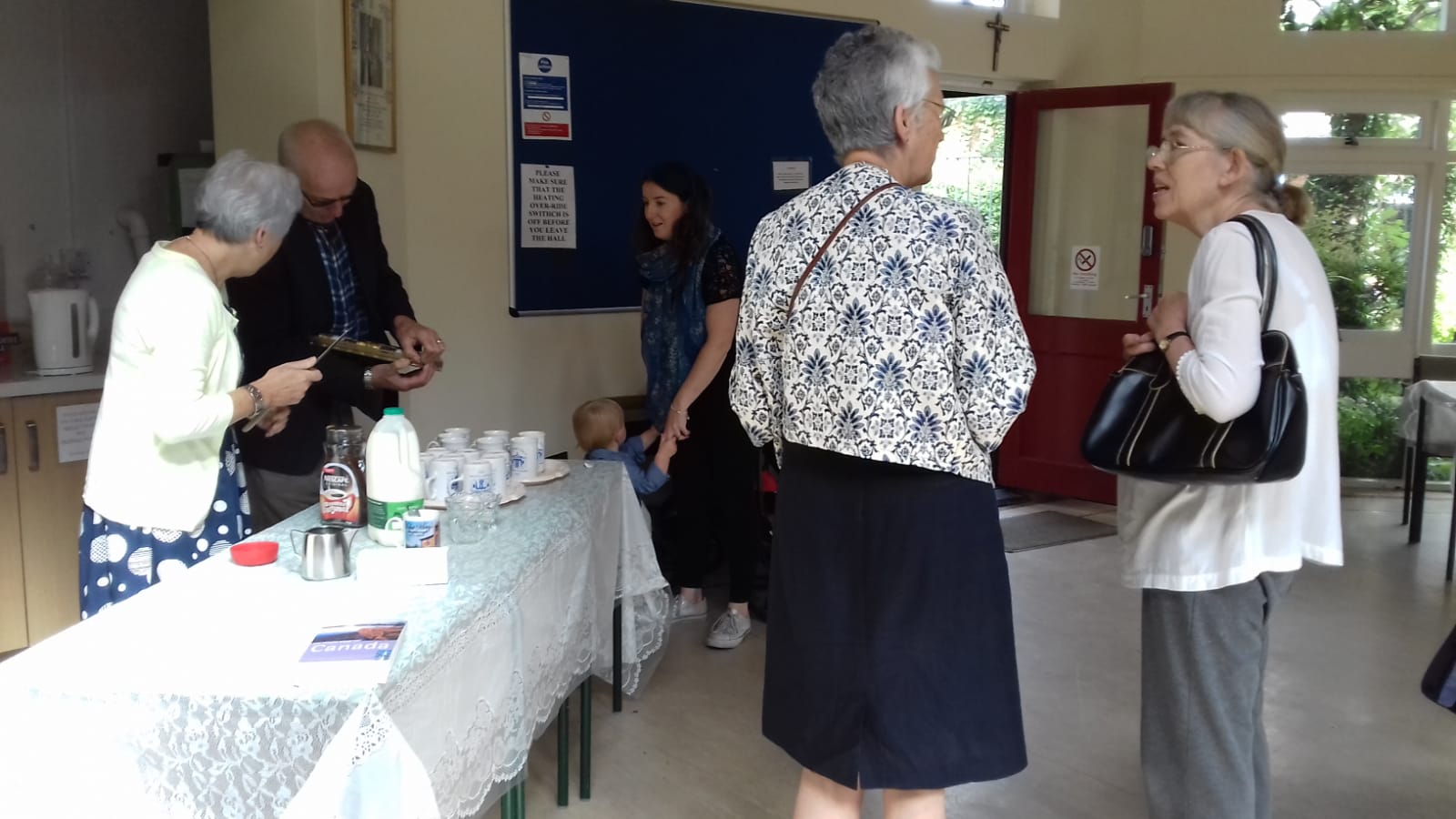England
Poverty rates are surging in the United Kingdom as it proceeds steadily towards Brexit. During the summer season many children are left with no source of nutrition. A Catholic community in the heart of the island took action with the “Grub club”, an ecumenically-inspired soup-kitchen created with the support of other local charities. Volunteers are at work to ensure a warm meal to so-called “pupil premium children” and to their parents

In need of food for the whole summer while their wealthier peers enjoy activities in sport centres or go to the park with their mothers. They survive only thanks to a piece of bread which their parents themselves forgo for their children, although they are hungrier than them. The so-called “pupil premium children” are entitled to free meals at school. But at the end of the school year they are left undernourished. It is happening in the United Kingdom, after eight years of budget cuts and austerity measures, even in an apparently affluent city like Loughborough, in the centre of England.
Volunteers and donations. Here the poverty-rate is of 32%, higher than the national average of 22%. One of most poverty-stricken roads is right opposite St.Mary’s Catholic church, founded by the Rosminian Fathers at the end of the 19th century. A group of parishioners had the idea of the “Grub club” initiative –an idiomatic expression for good food – consisting in warm meals prepared by volunteers at lunch every Monday and Thursday, from July 16 to August 20 for children and for their parents left without food during the summer months. Twenty people have already given their availability to cook, clean and also entertain the children. A donation of two-thousand pounds – almost three-thousand euro – was immediately given anonymously and others followed suit.
A creative minority group. “Our parish was the first in Loughborough to promote this initiative that is spreading across Great Britain after a Parliament commission on fighting hunger reported that last year a large number of pupils were left with no source of nutrition in the summer months, surviving only thanks to their parent’s food”, said Catherine Brady, one of the organizers. “Although as Catholics we are a minority group representing one in twelve inhabitants, in this case we involved the population, including the schools run by the Church of England”, the Anglicans, and “Cobden public primary school, in addition to the Sacred Heart Catholic school and the parish connected to it.”
Beyond the perimeter of the church. “During our first meeting to discuss the practical details of the project and find the funds as well as the volunteers, a teacher in our parish almost broke out in tears as she told us that every day some of her pupils cannot focus because they skipped breakfast. We share her feeling of helplessness. For us members of the middle classes it was unimaginable that right outside the church there were children living in these conditions”, Brady went on. “One of the greatest difficulties was overcoming the class barrier and persuade the parents to overcome shame and ask for help.” For the parish of St.Mary this initiative is also a way to attract new people, a deeply spiritual occurrence, and one of ecumenism. A third of all volunteers usually don’t go to church. “It’s the spirit that guides us, following the words of Pope Francis. His Holiness said that the poor are our great evangelizers. With the Grub club we intend to reach out to our own community, beyond the perimeter of the church”, Catherine said.
Food banks. Saint Mary’s church is connected with “Kings Church”, an evangelical church in Leicester, which promoted a similar initiative, and with “Meet Lunch”, and organization that seeks to replace school meals with other food across the UK. Last year almost a third of all British parents skipped at least a meal during the day to feed their children, and “food banks” are steadily increasing. The “Trussell Trust”, one of the largest charities in this sector, noticed that food banks attract twenty thousand more indigent people during the summer season.
Families on a cliff edge. “We reach out to poor families through schools”, said Bernard Monaghan, a Grub club volunteer worker. “School principals helped me distribute the forms to apply for the free meals, but we accept anyone, even those who should show up at the last minute. We will provide meals to parents and their children. In most cases families living on a cliff edge, within the complex subsidy system of British welfare, are the most problematic.” Namely “on paper they have enough to make ends meet, but it does not correspond to their real life situation.”
The parish hall. The venue of the Club is the parish hall in St.Mary’s church, connected with the kitchen of the adjacent elementary school. But organizational aspects turned out to be a real challenge for the volunteers who had to take an online course to ensure compliance with all sanitary and dietary requirements, and study all the legislative details enshrined in national legislation that has very strict standards when it comes to food and nutrition. Not to mention the laws for the protection of minors whereby every volunteer worker must provide evidence of a criminal background check prior to working near the children.